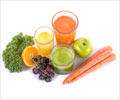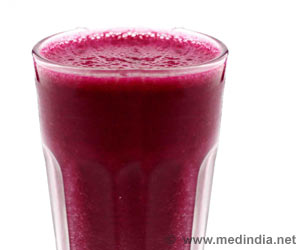Despite their supposed efficacy, juice cleanses are not scientifically supported and may lead to unhealthy relationships with food or eating disorders.
- Emphasizing a nutrient-rich diet with whole foods is essential for overall health, cautioning against substituting solid meals with juices
- The efficacy of juice cleanses lacks scientific support and may lead to unhealthy relationships with food or eating disorders //
- Seeking guidance from healthcare professionals or registered dietitians is advised for personalized and balanced dietary plans
Potential relationship between juice cleanse diets and eating disorders. A qualitative pilot study
Go to source).
The Potential Health Benefits of Juice Cleanses
Addressing the prevalence of ultra-processed foods in modern diets, a 2020 review emphasizes the potential benefits of juice cleanses. Fruits and vegetables, rich in nutrients and antioxidants, offer advantages such as improved cardiovascular health, weight loss, and support for general well-being (3✔ ✔Trusted SourceHealth benefit of vegetable/fruit juice-based diet: Role of microbiome
Go to source). Examining the link between juice cleanses and weight loss, a 2017 study suggests alterations in gut bacteria during a 3-day juice-only diet.
Contrary to popular belief, scientific evidence supporting the idea that juice cleanses flushing toxins from the body is lacking.
While certain detox treatments may aid liver function, flawed studies, and inconclusive evidence raise questions about the efficacy of juice cleanses in this regard.
Risks Associated with Juice Cleanses
Despite potential benefits, engaging in juice cleanses may pose risks.Inadequate solid food intake can lead to increased hunger, energy restrictions, tiredness, headaches, and irritability.
Additionally, the lower dietary fiber content in juices compared to whole fruits may impact blood sugar management and overall health.
“Detoxes†and “Cleansesâ€: What You Need To Know
Go to source).
Recognizing that organs like the liver, kidneys, and lungs are adept at eliminating harmful compounds, alternative approaches to nourishment are explored.
Embracing a well-rounded, wholesome diet comprising whole foods serves as the foundation for achieving optimal health and averting illnesses. While juices can be a beneficial addition to your dietary choices, it is crucial not to substitute them for solid food (4✔ ✔Trusted Source
Detox diets for toxin elimination and weight management: a critical review of the evidence
Go to source).
Scientific substantiation for the efficacy of juice cleanses is notably lacking, and their suitability varies among individuals, potentially fostering an unhealthy connection with food and even contributing to eating disorders.
For those apprehensive about their dietary habits, seeking guidance from a healthcare professional or a registered dietitian is recommended. Their expertise can assist in devising a personalized plan tailored to individual needs and concerns.
In conclusion, while juice cleanses may offer some benefits, understanding the potential risks and exploring holistic approaches to nourishment is essential for maintaining overall health and well-being.
References:
- Potential relationship between juice cleanse diets and eating disorders. A qualitative pilot study - (https://pubmed.ncbi.nlm.nih.gov/29983105/)
- “Detoxes” and “Cleanses”: What You Need To Know - (https://www.nccih.nih.gov/health/detoxes-and-cleanses-what-you-need-to-know)
- Health benefit of vegetable/fruit juice-based diet: Role of microbiome - (https://www.ncbi.nlm.nih.gov/pmc/articles/PMC5438379/)
- Detox diets for toxin elimination and weight management: a critical review of the evidence - (https://pubmed.ncbi.nlm.nih.gov/25522674/)
Source-Medindia










